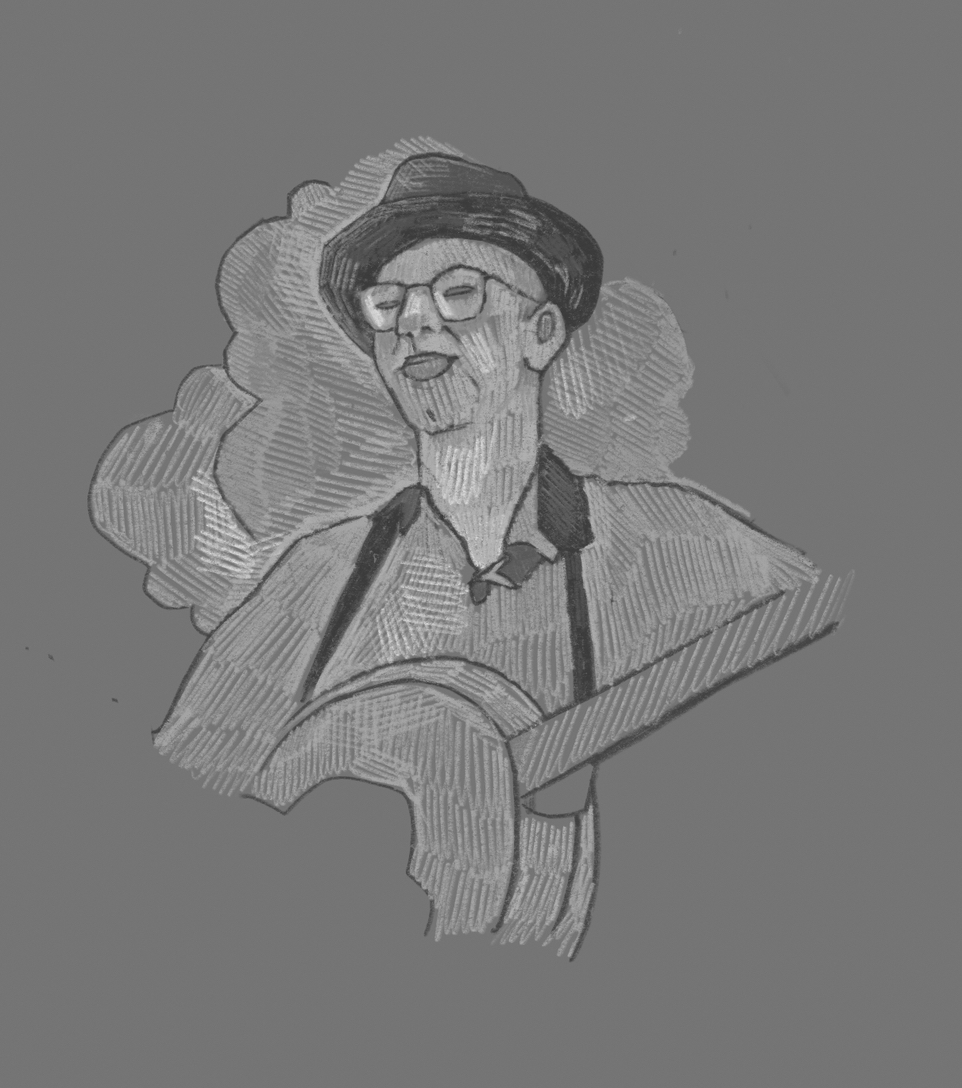House of the Rising Sun: Clarence Ashley, 1933
September 16, 2022
 Celeste Mercier
Celeste MercierThe Beatles, Nina Simone, Tangerine Dream, Leadbelly, The Supremes, Tracy Chapman, Dolly Parton, Kult, Sinead O’Conner, Jimi Hendrix, Toto and Muse all have one thing in common: they’ve released a cover of the folk-blues tune “The House of the Rising Sun.” As one of the most covered songs of all time, the track serves as an exemplar of the folk tradition—music that is passed down through hearing and playing, not formal tablature. The song’s lyrics craft a gothic narrative of some southern haunt, sometimes a brothel, other times an opium den, but most consistently a place where our protagonist is lured and can never quite muster the will to leave, thus beginning the narrator’s fall from grace. Evidently, there’s something beguiling to the human psyche about this precipice, this place of no return, that has allowed “The House of the Rising Sun’’ some indelible plot in our Musical Imagination.
As this column will explore myriad iterations and interpretations of the tune over its five weeks, let’s start at the beginning, somewhere in the hills of Appalachia at the dawn of the twentieth century. To specify the origins of a folk song is somewhat untenable; “The House of the Rising Sun” was first recorded under the name “Rising Sun Blues” in 1933 by prominent folk artist Clarence Ashley but, according to Ashley and the eminent folk historian Alan Lomax’s field records, versions of the tune had been played across Appalachia for many generations prior. Idiomatic of the folk tradition, Ashley himself learned the tune from his grandfather. This first recorded iteration is spare; Doc Watson’s fingerpicking sets a stripped-down instrumental setting for Ashley’s croon.
Before the famous arpeggiated A minor chord, before any elaborate hedonist allusions and before a slipstream of authorial prerogative took hold, our introduction to the fabled House, said to be nestled in some forgotten corner of the French Quarter, cautions young men of sirens perched on the house’s looming balcony and the woes of alcoholism (note that the pronouns used in this version, this male-directed warning, will quickly change in the proceeding popular recordings). As the foundation of our query, Ashley’s “Rising Sun Blues” is conspicuously sanitized—the narrative is cogent; the chord tones are largely major; Ashley’s voice precautions but doesn’t despair. These humble beginnings portend some kernel of unforgettable intrigue lying in these lyrics that will eventually launch the song into ubiquity. Our quest is to reveal what constitutes this enchantment by examining how the song has flexed and formed to the wiles of such vastly different musicians over the decades.
Lyrics:
Clarence Ashley, 1933: “Rising Sun Blues”
There is a house down in New Orleans
They call the Rising Sun
And it’s been the ruin of a many poor boy
And me, oh God, for one
Then fill the glasses to the brim
Let the drinks go merrily around
And we’ll drink to the health of a rounder poor boy
Who goes from town to town
The only thing that a rounder needs
Is a suitcase and a trunk
And the only time he’s satisfied
Is when he’s on a drunk
Now boys don’t believe what a girl tells you
Though her eyes be blue or brown
Unless she’s on some scaffold high
Saying “Boys, I can’t come down.”
Go tell my youngest brother
Not to do the things I’ve done
But to shun that house down in New Orleans
They call the Rising Sun
I’m going back, back to New Orleans
For my race is a nearly run
Gonna spend the rest of my wicked life
Beneath that Rising Sun
Comments
Before submitting a comment, please review our comment policy. Some key points from the policy:
- No hate speech, profanity, disrespectful or threatening comments.
- No personal attacks on reporters.
- Comments must be under 200 words.
- You are strongly encouraged to use a real name or identifier ("Class of '92").
- Any comments made with an email address that does not belong to you will get removed.

Very very nice insight by Ava Liversidge, my thanks for adding more historical weight to a heavy song. Being 70 years old I greatly enjoyed the music I grew up with….so many choices, so many statements to fill a listener with inspiration, sadness, joy, rage and deep thinking. House of the Rising Sun ALWAYS struck such deep and stirring chords for the timeless message. Riverside really put words to emotion, for me, and I thank her.
Curious as to why The Animals weren’t named in the list of those who recorded The House of the Rising Sun. They made it a hit in 1964. It is actually the only one I remember hearing back in the 1970’s.